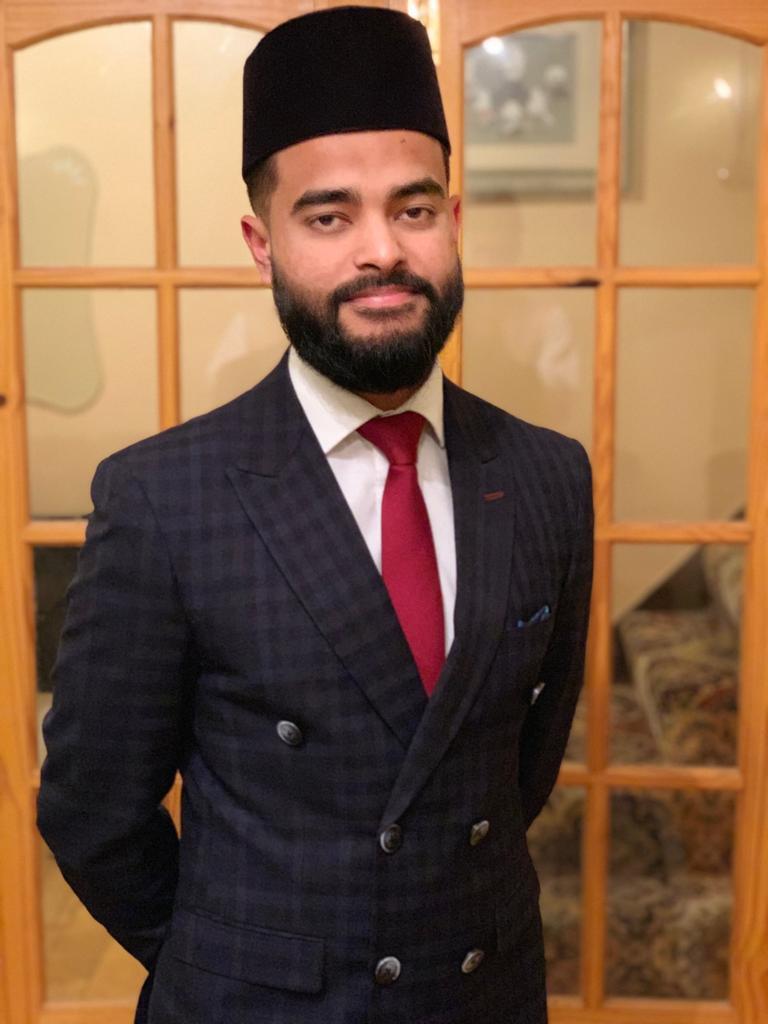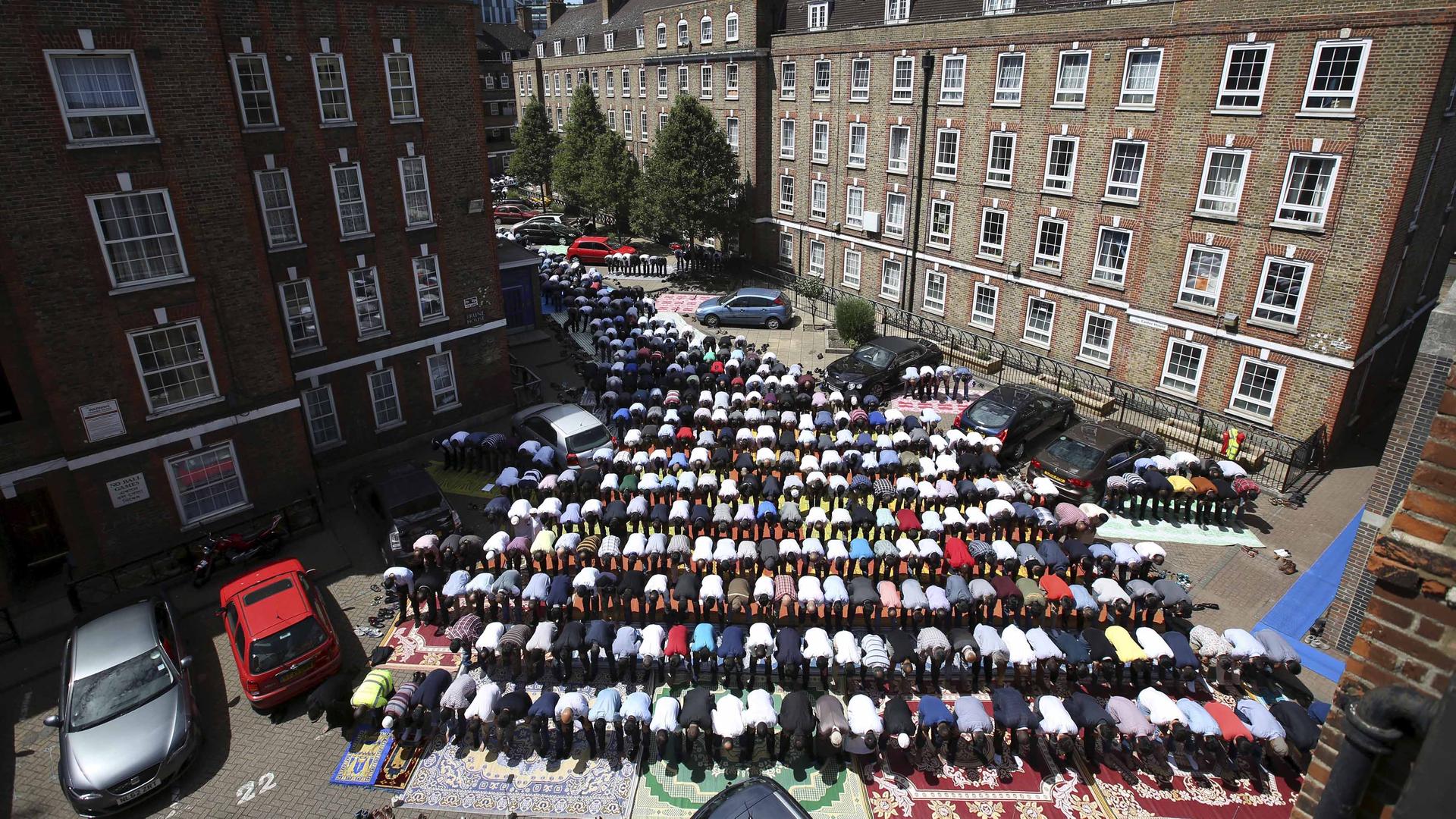An aerial Muslims attend Friday prayers in the courtyard of a housing estate next to the small BBC community center and mosque in east London, Britain, July 10, 2015.
Ramadan begins Thursday evening. It’s the monthlong observance by many Muslims around the globe marked by fasting and prayers.
In a normal year, Muslims typically fast during daylight hours and gather together to break the fast every evening. This year, though, Islamic communities are adapting to the reality of marking the holy month during a pandemic.
Noor Hadi is an imam in South London for the Ahmadiyya Muslim community. He spoke to The World’s Marco Werman about how the families he serves are adapting to a month of worship, fasting, sharing food — and social distancing.
Related: COVID-19: The latest from The World

Marco Werman: How is this year’s Ramadan different from past years?
Noor Hadi: For us Muslims in the UK, as you, of course, know, we’re going through a lockdown across the country. So of course, Muslims won’t be able to congregate at the mosques when Ramadan begins. I think what’s different this year is the fact that what we will usually do at a mosque, we’re bringing [it] all online, going to be going live, delivering them lectures. What’s different this year as well [is], because Ramadan usually brings such a togetherness feeling, people usually break their fast together. They usually open their fast together, as well, before sunrise and after sunset. So they’re going to miss that feeling of breaking and eating together.
And just practically, for people to break the fast together, you’re going to be encouraging families to put a laptop in the kitchen.
Yeah, exactly. And so — we’ve set up a virtual breaking of the fast together. And before actually breaking the fast, we normally have a custom in the mosque where there’s short talks and there’s inspiring lectures and prayers together. Those short talks will be online. You know, they will be virtually eating together and breaking the fast together.
Related: Amid lockdowns, churches find creative ways to keep in touch with the masses
So it feels like you’ve got online workarounds to help people who would normally be isolated. What do you do for people, for families, who don’t have computers or wifi?
Without having a computer or wifi, we’ve actually set up a helpline. We have a national charity in the UK known as Humanity First with a helpline. Even if you don’t have Internet, just contact us through your local telephone. And we have youth members actively waiting for those calls from 8 a.m. to 8 p.m. And we tried to dispatch someone on that very day to go to those families and actually help them [with] running errands, like getting groceries or prescriptions, medication. Just through the helpline service, [we] helped around 5,000 of all UK households.
Related: Wajahat Ali on maintaining one’s faith through crises
It occurs to me that congregating as Muslims in the UK isn’t just an expression of faith, whether it’s Ramadan or Friday prayer, it’s also an expression of solidarity in the face of continuing microaggressions and outright animosity. What does the Muslim community lose by not having the monthlong moment of community and solidarity of Ramadan?
There’s this whole idea that, fine, Ramadan does bring a lot of togetherness and this sense of congregation and community aspect to it. But it’s easily forgotten that … there’s another aspect to Ramadan, and that’s the whole purpose of being able to self-reflect and improve yourself as Muslims. You try to stay optimistic and positive when it comes to this. And this month is giving us a time, just like the Holy Prophet Muhammad, peace be upon him, spent in isolation during Ramadan. And it’s giving a month of days just to actually self-reflect, try to improve your morals, try to increase or enhance your worship as an individual.
This year is peculiar in so many ways. What does Ramadan mean to you this year?
For me, I see that this Ramadan, not only do I get a lot of time to actually self-reflect and try to improve myself as a human being, but because I am Muslim, a huge part of your faith is that you also help one another. We believe that one of the rights that Islam or your religion has upon you is that you take care of humanity and you try to serve God’s creation. So now that we see that our neighbors are in need, it gives us extra zeal this Ramadan, because we know that doing this and helping others is actually increasing our spirituality and helping us get closer to God as well.
This interview has been edited and condensed for clarity.
